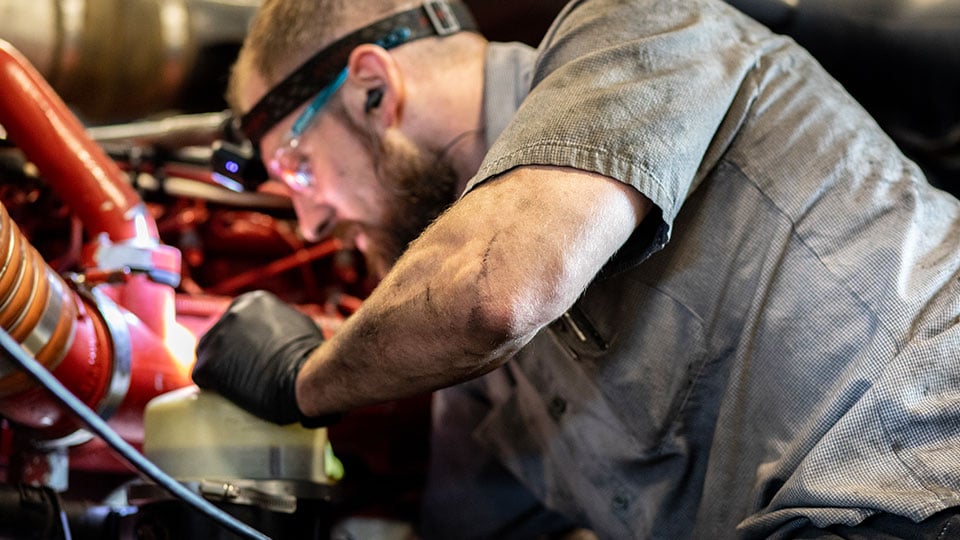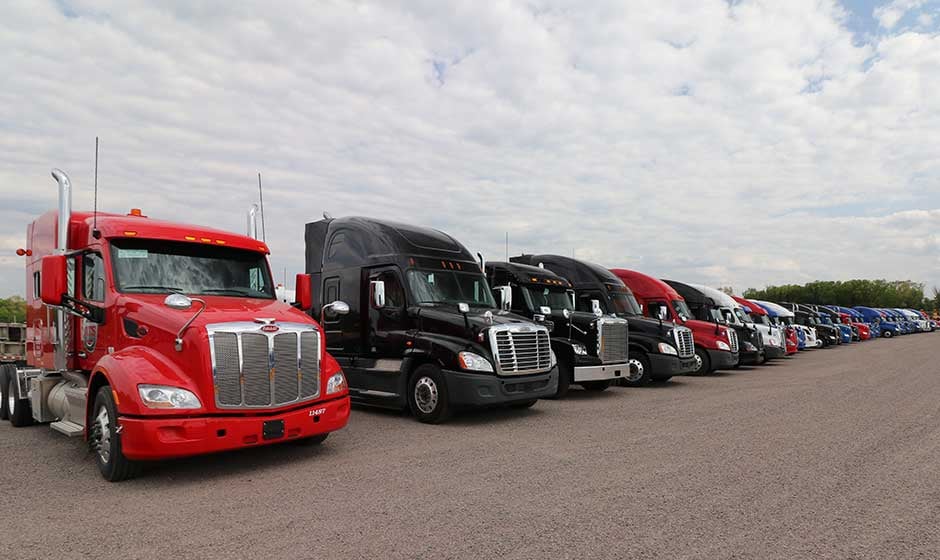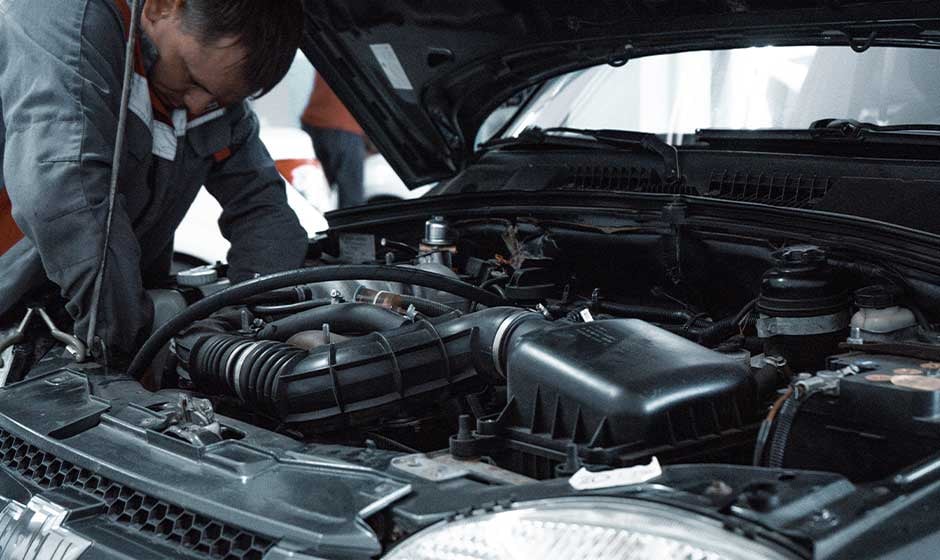 Being a mechanic is an excellent profession — especially today. Over the next 10 years, the automotive technician employment market is projected to grow by more than two percent. The diesel mechanic industry will mirror this trajectory, creating thousands of job opportunities for individuals within these trades.
Being a mechanic is an excellent profession — especially today. Over the next 10 years, the automotive technician employment market is projected to grow by more than two percent. The diesel mechanic industry will mirror this trajectory, creating thousands of job opportunities for individuals within these trades.
You're on a meaningful path as a professional mechanic or someone considering this career.
Mechanics are central to the success of the U.S. and global economies; they keep machinery/equipment and vehicles running efficiently and everyone adjacent to them (consumers, the motoring public, operators) safe.
Two options are available for people who want a mechanic career working on vehicles: Become a diesel mechanic or an automotive mechanic.
While there is some contrast between these paths — like their certification requirements, for example — they’re strikingly similar in many respects. An engine is an engine, after all.
As a result, it’s not uncommon for diesel mechanics to toy with the idea of packing up their wrenches and joining the automotive industry – and vice-versa.
At Anderson Trucking Service (ATS), we own thousands of semi-trucks and twice as many trailers. Our diesel mechanics and technicians maintain this fleet, keeping trucks moving and our drivers happy.
After nearly 70 years in this industry, we’ve hired hundreds of mechanics across the U.S. — many of whom were previously automotive mechanics. In this article, you’ll learn why diesel mechanics transition from the automotive industry and the pros and cons of doing so.
Why Switch From Being an Auto Mechanic to a Diesel Mechanic?
There are several notable reasons someone may decide to leave their job as an auto mechanic to become a diesel mechanic. This could be for a change of scenery, or because they’re tired of working on the same types of cars.
Of course, some may change simply to try their hand at something new, looking to round out their skill set.
It’s not easy to pinpoint a universal reason why people make this switch. However, pay and work-life balance are usually influencing factors.
Here’s what you need to know about leaving a career as an auto mechanic to become a diesel mechanic. . .
What Are the Advantages of Making This Switch?
There are several advantages to working as a diesel technician instead of an automotive technician. Prime advantages are:
- The diesel mechanic pay structure
- More shift scheduling options
- Transferable skills
- Long-term earning potential
1) The Diesel Mechanic Pay Structure
Diesel mechanics are paid on a base pay plus incentive program. Auto technicians typically earn a flat-rate paycheck. This can be attractive to mechanics, particularly high performers who can complete jobs efficiently. Earning an incentive is a great way to maximize your time and income as a mechanic. In the automotive industry, mechanics often see their work come in spurts and everything is quick turn. This limits the efficacy of an incentive program since, at times, there isn’t much to do.

2) More Shift Scheduling Options
By and large diesel mechanics — who can either work for a dealership or a fleet — are offered second- and third-shift options. Auto shops and dealerships are usually closed at night, sending all workers home each evening. In the diesel world (particularly when working for a fleet), evening and overnight shift options are common.
So, if you’re looking for a job that you can work during these hours, you’ll more likely find them as a diesel mechanic.
3) Transferable Skills
The skills developed through working as an auto mechanic translate beautifully to the diesel world. By and large, parts and components are very similar in these industries, requiring the same knowledge/skills to analyze, diagnose and fix these vehicles.
With the exception of learning air-braking systems and a certification or two (a DOT Inspector Certification is required to work on commercial motor vehicles), this transition can be very smooth. Expect to round this learning curve relatively quickly if you decide to change career paths.
4) Long-Term Earning Potential
Over the course of their career, diesel technicians tend to have more earning potential than automotive technicians. After five-plus years, mechanics working on diesel equipment usually see their take-home pay accelerate quicker than auto mechanics.
According to the Bureau of Labor Statistics, auto mechanics have a median income of $22.58 per hour. Diesel mechanics have a median income of $26.14 per hour. While there are outliers, on average, diesel technicians can expect to make more money long term.

What Are the Disadvantages of Making This Switch?
Here are the main disadvantages of making the switch between being an automotive service technician to working as a diesel service technician. . .
- You may have to take an initial pay cut
- There are fewer manufacturers in the diesel space
1) You May Have to Take an Initial Pay Cut
New diesel mechanics make a bit more than new automotive mechanics, generally speaking. That said, both roles see their income increase with tenure. So, if you’ve been an automotive mechanic for a while (five years or more), initially, your pay will probably decrease when you make this transition.
2) There Are Fewer Manufacturers in the Diesel Space
Compared to automobile manufacturers, there are far fewer companies manufacturing diesel-powered transportation equipment. As a result, the types of vehicles you work on won’t be as varied when you’re a diesel mechanic. Usually, diesel mechanics in the transportation industry end up either working for a dealership — where they only service vehicles from a specific manufacturer — or for a fleet (where they might work on equipment from a few manufacturers). This can be a disadvantage if you’re looking for a bit more variety.
Succeed as a Diesel Mechanic (6 Tips)
Mechanics have quite a few career options. One of these lies in the trucking industry where mechanics keep their company’s trucks running and America’s economy afloat. These professionals make a meaningful impact on this vibrant industry.
In this article, you learned there are a few reasons someone may decide to switch between being an auto mechanic and a diesel mechanic — they’d like a change of scenery, they’re looking for a new challenge, etc.
You also learned the pros (pay structure, earning potential, shift options) and cons (initial pay cut, fewer manufacturers to work with) of doing so.
With this information, the next step is up to you. However, if you decide to make this change, these six things will help you be successful as a diesel mechanic in the long term.
ATS is always looking to add great new diesel mechanics — especially if they have an automotive service background. Find a position near you and if you have any questions, don’t hesitate to reach out.


